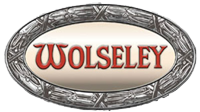FOMC to Combat Constraints on Heritage Motoring
By Roy Hughes, Submissions Secretary, NZFOMC
Growing constraints around the world on the use of heritage vehicles and the potential impact of the Zero Carbon Bill on motoring in New Zealand were amongst the main issues highlighted by The New Zealand Federation of Motoring Club (NZFOMC) President the Hon. Harry Duynhoven in his report to this year’s annual general meeting.
“It has been a mixed year, good progress on some fronts, less than stellar on others, and if you’re like me, not nearly enough time in the garage,” he said. “As president I have visited five clubs in my own area to successfully invite their participation in our activities and I hope we can continue to expand our membership. Over the coming year I plan to visit the remaining local clubs and I aim to gradually bring all to see the advantages of being in the federation.”
The primary activities of the NZFOMC during the past year included submissions on the Zero Carbon Bill, and responses to the Productivity Commission report on the Low Emissions Economy and the latest round of proposed ACC levy changes. A variety of other issues have also been addressed, including some which will require ongoing work, such as the public liability costs issue imposed by some local bodies, compulsory third party vehicle insurance, and various NZTA rule changes.
“I also made a courtesy visit to the Associate Minister of Transport, the Hon. Julie-Anne Genter, who I had not previously met. She seems very able and is the first minister in years with formal qualifications in transport. She is a reformer and has shown a willingness to try new ideas, especially in attempts to reduce the road death and injury rate.
The recent seminars for motorcyclists around the country are a good example. I’m sure there will be more initiatives in the coming months. I do feel it is time we made a formal approach to visit her and I imagine either she or Minister Twyford would be a very good speaker at next year’s AGM,” he said.
“There are growing constraints on the rights to drive and use enthusiast and heritage vehicles in some countries and we need to watch those similar well-meant initiatives do not compromise the use of our vehicles here. We also continue to advocate for the recognition of heritage vehicle status to be reduced to 30 years from the current 40 with the appropriate adjustment to licencing fees. We believe very few vehicles older than 30 years are still in daily use, and even though a large number of 30 plus year old vehicles remain registered, many of these are not continually licenced.
“The current push for electrification of the vehicle fleet may also create future issues but current EV prices and battery technology make it hard to see worthwhile reductions to CO2 emissions if there are to be massive increases in the numbers of EVs and corresponding scrappage of only partly used ICE vehicles.
“Perhaps conversions of existing daily use vehicles to electric power may be a more useful approach. Maybe LPG or CNG may make a return as a lower carbon emitting interim solution. The real long term solution for individual motorists is likely to be the fuel cell vehicle but costs will have been slashed before that becomes realistic for most drivers. So it looks as though the future will still see plenty of issues for the NZFOMC to wrestle with, and I haven’t even talked about the Incorporated Societies Act or Health and Safety issues yet!”
Harry also welcomed Chris Butler who has taken over the role of NZFOMC Secretary. Actively involved in vintage and classic motoring for more than 50 years Chris was a long time member of the VCC and other car clubs and is currently club captain of the Greater Wellington Citroen Car Club. Professionally Chris man
